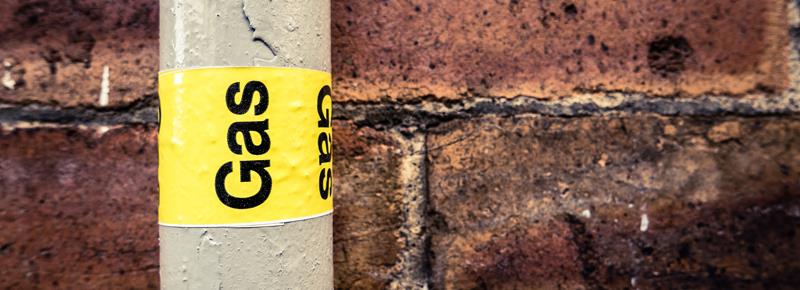Odor Fade
Did you know natural gas is odorless in its natural state?
An odorant called Mercaptan is added to natural gas before it reaches your meter. This is what gives gas that characteristic rotten egg smell to alert you of a gas leak. However, do not rely just on your nose to detect the presence of natural gas.
Certain conditions may cause the odorant to diminish so that it is not readily detectable, also known as odor fade. Odor fade occurs when the level of odorant in the gas is reduced due to physical and/or chemical processes including adsorption, absorption and oxidation.
- Odor fade occurs predominantly in installations of new pipe rather than existing pipe. It is more pronounced in new steel pipe of larger diameters and longer length. However, it can also occur in plastic pipe and in smaller and/or shorter pipe installations. New pipeline installations or additions of new piping may require the conditioning of the pipe before it is placed into service to prevent odor fade.
- If a natural gas leak occurs underground, the surrounding soil may cause odor fade. Other factors that may cause odor fade include:
- Construction of the customer’s gas facilities
- The presence of rust, mill scale, moisture, liquids or other substances in the pipe
- Intermittent, little or no gas flow over an extended period of time, until gas flow increases or becomes more frequent
Be aware that you may not be able to smell the odorant in natural gas if:
- You have a weak sense of smell
- You have been exposed to the same odor for an extended period of time (odor fatigue)
- You are experiencing an illness such as common cold, sinus conditions, COVID-19 or allergies
- The odor is being masked by other odors in the area
- You use tobacco, alcohol, drugs or certain medications that might interfere with your sense of smell
If you suspect an odor fade condition, leave the area and then call 911 or 1-800-880-7734 (PSEG).
A Note About Gas Purging
Do not purge the contents of a gas line into a confined space. Purging of a gas line should only be done by a licensed, qualified professional and should be done in a well-ventilated area or by venting the contents to the outside atmosphere. Always use gas detection equipment during purging operations or when otherwise working on gas piping systems to ensure that no natural gas is present that may result in a combustible or hazardous atmosphere. DO NOT rely on your sense of smell alone to detect the presence of natural gas. Consult your local plumbing code, mechanical code, international fuel gas code and/or your NJ Department of Community Affairs (NJDCA) for more information. When installing gas appliances or equipment, the manufacturer’s instructions should be followed in accordance with the local code authority (NJDCA).





















